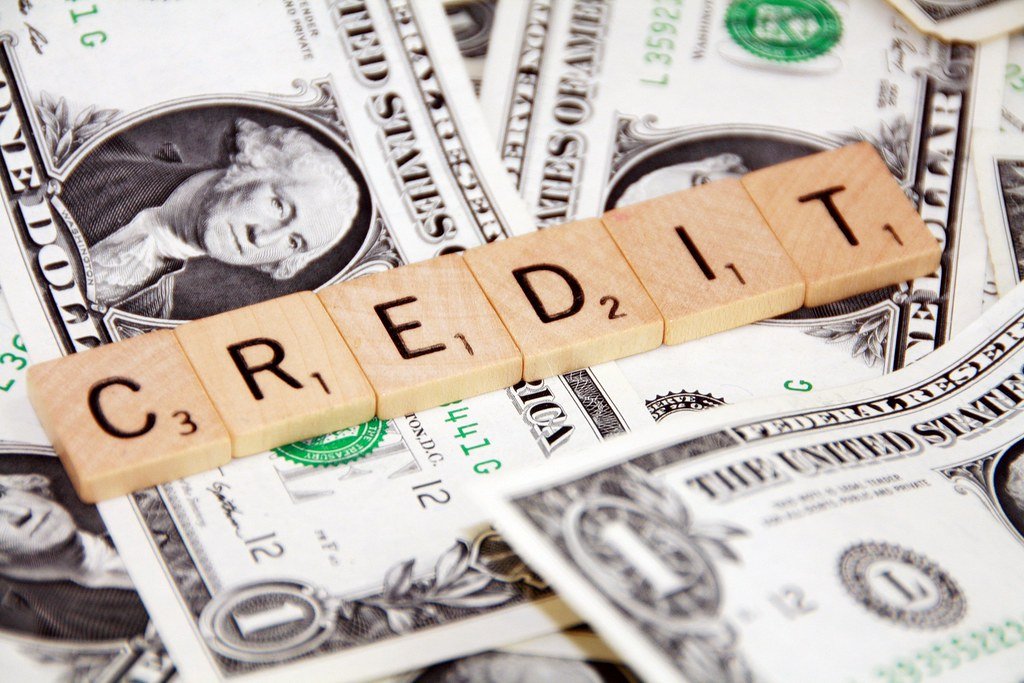How to Build Credit from Scratch
Many people find the process of building credit intimidating, but it doesn’t have to be. In this post, I’ll guide you through the imperative steps to establish your credit history effectively. I’ll share practical tips that have worked for me, helping you understand how to create a strong credit profile from the ground up. Whether you’re starting from zero or looking to improve an existing score, you’ll gain the confidence and knowledge needed to take charge of your financial future.
Key Takeaways:
- Open a secured credit card or a credit builder loan to start establishing a credit history.
- Make timely payments on all bills, as payment history significantly impacts your credit score.
- Keep credit utilization low by maintaining a balance below 30% of your credit limit.
- Regularly check your credit report for accuracy and dispute any errors you find.
- Avoid applying for too many credit accounts at once, as multiple inquiries can lower your score.
The Foundation of Credit: What You Need to Know
The Role of Credit Scores in Financial Health
Credit scores serve as a reflection of your financial behaviors and habits, often determining your eligibility for financing, rental agreements, and even job opportunities. Lenders utilize these scores to evaluate the risk of lending money or extending credit to you. A higher score generally leads to more favorable lending terms, such as lower interest rates on mortgages and loans. For instance, a score of 740 or above could save you thousands over the life of a mortgage compared to a score of 620. This data underscores the profound impact your credit score has on your overall financial health.
In my experience, people often overlook how credit scores can influence everyday expenses beyond loans and credit cards. Insurance companies may charge higher premiums based on your score, as they see lower scores as indicative of higher risk. This interconnectedness of credit scores with various financial aspects makes understanding and improving your score a critical task in achieving a healthy financial life.
Key Factors Influencing Your Credit Report
Your credit report is influenced by several key factors that lenders assess when determining your creditworthiness. Payment history comprises 35% of your score and illustrates how reliably you pay your bills on time. The amount of debt you owe accounts for another 30%, focusing on your credit utilization ratio—how much of your available credit you are currently using. Length of credit history (15%) shows how long your accounts have been active, and new credit inquiries (10%) assess your recent applications for new credit, indicating risk. Finally, the types of credit you have (10%) reveal whether you can manage various forms of debt, such as revolving credit and installment loans.
- Payment history is the largest contributor, emphasizing the importance of on-time payments.
- Credit utilization should ideally be under 30% for a healthier score.
- Consider the length of your credit history when making decisions about opening new accounts.
- A diverse credit profile can demonstrate your ability to manage different types of debt.
Recognizing these factors provides a roadmap for improving your credit health. Monitoring your credit report regularly can help identify areas needing attention. Additionally, engaging with financial educational resources can give you insight into how to positively influence these key aspects.
- Your payment history directly affects 35% of your score, so setting up reminders or auto-pay can help.
- Aim to maintain low balances on your existing credit cards; a ratio below 30% is ideal.
- Opening new credit accounts can affect the average age of your credit history, balancing this is important.
- Utilizing different types of credit over time can enhance your profile’s diversity.
Recognizing the nuances of credit report factors will empower you to make strategic financial decisions. Comprehensive understanding, followed by practical actions, leads to tangible results in your credit standing over time.
First Steps: Establishing Your Credit Profile
Building your credit profile may seem like a daunting task, but with deliberate actions, you can pave the way for a strong credit history. The next steps will help you create an established credit profile, making it easier to obtain loans and credit when you need them. You’ll be laying down the groundwork that will allow you to access better interest rates and favorable terms in the future. Let’s explore some specific strategies to kickstart your credit journey.
Secured Credit Cards: A Safe Starting Point
Secured credit cards are an excellent option for anyone starting to build credit. They require you to put down a cash deposit that serves as your credit limit. So, if you deposit $500, you can spend up to that amount. This type of card allows you to demonstrate responsible credit usage by making small purchases and paying them off in full each month. Many secured cards will report your payment history to the major credit bureaus, helping to establish your credit profile as you grow. Over time, you may even qualify for an unsecured card that doesn’t require a deposit.
Additionally, secured credit cards can come with various perks, such as the opportunity to transition to an unsecured card after a few months of responsible usage. I’ve seen cases where individuals transitioned to unsecured cards within six months, enabling them to access better credit terms and interest rates sooner than anticipated. If you manage your secured card wisely, consistent payments can raise your credit score in no time.
Becoming an Authorized User on Someone Else’s Account
Another effective way to build your credit profile is by becoming an authorized user on a family member’s or friend’s credit card account. This arrangement means you can use the card for purchases without being legally responsible for the debt, while the primary cardholder remains liable for the balance. As the primary user makes timely payments, this positive payment history also reflects on your credit report, helping to boost your credit score. Choose someone with a solid credit history and low credit utilization to maximize the positive effects.
Being added as an authorized user can be particularly beneficial if the cardholder has a long history of on-time payments. If you have a responsible parent or relative willing to add you to their account, you could quickly see a positive impact on your credit score. Just ensure that you communicate openly about your intention to use their card responsibly to maintain a healthy relationship.
Building Momentum: Practical Strategies for Credit Growth
The Power of On-Time Payments
Establishing a habit of making on-time payments significantly impacts your credit score. Every month you pay your bills on time, you reinforce your reliability as a borrower, gradually increasing your score. Payment history accounts for about 35% of your credit score, and missing just one payment can set you back significantly. By setting up automatic payments or reminders, I’ve found it much easier to ensure my bills are paid promptly. Even small debts—like a cell phone bill or utility payment—matter. Making these payments on time not only helps your credit profile but also reinforces the habit of managing financial commitments responsibly.
Additionally, keep an eye on due dates and avoid late fees that can harm your reputation with credit bureaus. I recommend tracking all payment deadlines using personal finance apps or traditional calendars. This way, you safeguard your progress while building your credit profile. If you ever faced a situation where you had to delay a payment, reaching out to your creditor might offer multiple solutions to mitigate the default on your record.
Utilizing Credit Responsibly: The 30% Rule
Many people may overlook the importance of credit utilization, but I found it to be a pivotal factor in growing my credit. The 30% rule suggests that you should aim to keep your credit utilization ratio below 30% of your available credit. If you have a credit limit of $1,000, for instance, try to keep your balance below $300. This demonstrates to lenders that you can borrow responsibly and manage your spending. A lower utilization rate effectively boosts your credit score, reflecting a pattern of disciplined financial behavior.
Staying within this ratio can be achieved by monitoring your spending habits and adjusting them if needed. After gauging my usage, I realized that keeping my balances well below 30% not only improved my credit score but also reduced my financial stress. I make it a point to pay down my credit cards regularly, especially before billing cycles close, ensuring my utilization ratio remains in a favorable range. Frequent checking of my credit utilization helped me understand how my spending affected my overall credit health.
Advanced Tactics: Enhancing Your Creditworthiness
As you progress in your credit-building journey, implementing advanced tactics can significantly enhance your creditworthiness. While a strong payment history and low credit utilization are crucial, there are additional strategies that can give you an extra edge. From diversifying your credit types to consistently monitoring your credit report, these tactics help refine your financial image. If you’re eager to learn more about the basics of credit building, you can visit this Build Credit With No Credit History in 6 Simple Steps.
Advanced Tactics Overview
| Strategy | Benefit |
| Diversifying Credit Types | Demonstrates responsible borrowing habits. |
| Credit Monitoring | Allows you to track your credit report for errors and potential identity theft. |
| Paying off Small Balances | Reduces credit utilization, positively impacting your score. |
| Becoming an Authorized User | Builds credit history through someone else’s account. |
| Using Credit Responsibly | Aids in maintaining a positive credit profile. |
Diversifying Your Credit Types
Diversifying the types of credit you have can be a powerful strategy in elevating your credit score. If you currently rely solely on credit cards, consider adding an installment loan, such as a personal loan or auto loan. Implementing different types of credit showcases your ability to manage various financial obligations responsibly. This broader approach reflects well on your credit profile and negates the perception of being a one-dimensional borrower.
- Consider a mix of revolving credit (credit cards) and installment loans (personal loans).
- Research credit-builder loans aimed specifically at individuals starting from scratch.
- Remember that each type of credit has unique management techniques that you must be prepared to follow.
- Avoid opening too many credit accounts simultaneously, which can negatively affect your score.
- Perceiving the different credit types as tools rather than burdens can empower you in your financial decisions.
Diversifying Your Credit Types Overview
| Credit Type | Description |
| Revolving Credit | Allows borrowing and repayment over an unlimited period, such as credit cards. |
| Installment Loans | Fixed amounts borrowed for a set term, like personal loans. |
| Mortgage | A long-term loan specifically for purchasing property. |
| Student Loans | Designed to cover education-related expenses, showing responsible borrowing. |
| Retail Credit | Specific credit offered by retail stores, often for promotions. |
Monitoring Your Credit: Tools and Pitfalls
Staying informed about your credit status is crucial in optimizing your score. Numerous tools available today can help me track my credit report. Credit reporting agencies like Experian, Equifax, and TransUnion provide annual free reports, while various apps offer real-time updates and insights. It’s exhilarating to respond promptly to any changes, whether it be a small increase in my score or identifying an error that may need rectifying. All of this fosters a proactive approach to credit management.
However, the abundance of credit monitoring tools can present some pitfalls. Subscription services may promise monthly updates but often come with hidden fees that can add up over time. Staying focused on those with reputable reviews and transparency ensures I don’t get caught in a financial trap. Armed with the right tools, a vigilant eye on my credit utilization, and an understanding of which pitfalls to avoid, I can build a robust credit foundation that serves me well into the future.
Avoiding Credit Pitfalls: Common Missteps to Dodge
The Dangers of Ignoring Your Credit Report
I can’t stress enough how critical it is to keep an eye on your credit report. Ignoring it can lead to unexpected surprises when you’re ready to make a major financial commitment, such as applying for a loan or mortgage. Errors are all too common—whether it’s a missed payment you actually made or a debt that isn’t yours. These mistakes can significantly drag down your credit score, affecting your ability to secure favorable interest rates or even loan approval at all. Regularly reviewing your credit report allows you to correct inaccuracies and stay informed about your credit standing.
<pAdditionally, failing to monitor your credit report means missing out on detecting potential fraud or identity theft. If someone were to open accounts in your name, catching that early is vital. According to the Federal Trade Commission, around 1 in 5 consumers have found errors on their credit reports, but many of these discrepancies can be fixed if addressed swiftly. Keeping your finger on the pulse of your credit opens the door to proactive measures, ensuring you remain in control of your financial health.
Mismanagement of Debt: How to Stay Afloat
Managing debt effectively is all about balance, and it’s easier said than done. It’s vital to know what you owe, the interest rates associated with those debts, and the timeline for repayments. Striking that balance helps prevent the deepening of debt while allowing you to build your credit score through timely payments. Avoiding late fees can seem minor, but those charges can add up and derail your progress. A dedicated budget is a great starting point; it allows you to allocate extra funds toward higher-interest debts without neglecting other obligations.
Staying afloat amidst financial obligations means establishing a strategy that prioritizes tackling debt in the most efficient manner. For instance, considering the snowball or avalanche methods can provide you with clear directions on which debts to pay off first. The snowball method focuses on paying off the smallest debts first for quick wins, while the avalanche method targets the highest interest debts to minimize overall costs. Monitoring your spending habits can also illuminate areas where you can cut back, freeing up funds for debt repayments. This proactive approach not only helps you avoid unnecessary debt but also sets a foundation for stronger credit in the long run.
To Wrap Up
To wrap up, building credit from scratch is a journey that requires patience and diligence. I know that starting from zero can seem daunting, but by taking proactive steps such as obtaining a secured credit card, becoming an authorized user, and consistently making on-time payments, you can establish a solid foundation for your credit profile. It’s important to monitor your credit report and score regularly to understand how your actions are impacting your credit health. This awareness will guide you in making informed financial decisions moving forward.
With each responsible action, you are laying the groundwork for a healthy credit history that can benefit you in various aspects of your financial life, from securing loans to obtaining better interest rates. As you develop your credit, I urge you to cultivate sound financial habits, such as budgeting and keeping your credit utilization low. By staying disciplined and informed, you will not only build credit but also enhance your financial well-being for years to come.

FAQ
Q: What is the importance of building credit from scratch?
A: Building credit from scratch is necessary for establishing a good financial foundation. A strong credit score can help you secure loans, obtain favorable interest rates, and even impact your ability to rent an apartment or get a job. It provides lenders with the assurance that you are a responsible borrower, ultimately leading to better financial opportunities in the future.
Q: What steps should I take to begin building credit?
A: To start building credit from scratch, consider the following steps:
1. Open a secured credit card, which requires a cash deposit that acts as your credit limit.
2. Become an authorized user on someone else’s credit card account.
3. Apply for a credit-builder loan, typically offered by credit unions or community banks.
4. Make small purchases and pay them off promptly to demonstrate responsible credit usage.
5. Always pay your bills on time, as payment history is a significant factor in credit scores.
Q: How long does it take to build a good credit score?
A: Generally, building a good credit score can take anywhere from a few months to several years, depending on your credit-building efforts and financial habits. Initially, it’s necessary to establish a history of on-time payments and responsible credit usage. Over time, as your credit history lengthens and your payment record remains clean, your score will gradually improve.
Q: Can I build credit without a credit card?
A: Yes, it is possible to build credit without a traditional credit card. There are alternative methods such as taking out a credit-builder loan, becoming an authorized user on someone else’s account, or using rent payment reporting services that report your rent payments to credit bureaus. These options can help establish your credit history without the need for a credit card.
Q: How often should I check my credit report as I build credit?
A: It is advisable to check your credit report at least once a year to monitor your progress and ensure that all the information is accurate. You can obtain a free credit report annually from each of the three major credit bureaus—Equifax, Experian, and TransUnion. Keeping an eye on your report helps you catch any discrepancies early and maintain a healthy credit profile as you build your history.















